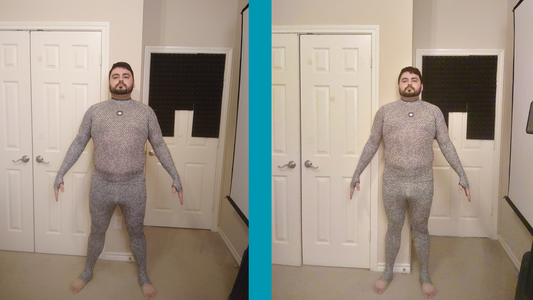

Why Weight Loss Is Not Linear and How To Track Your Progress
Weight loss is not linear. In fact, losing weight can be confusing and downright frustrating, especially if you track your progress strictly by the numbers on the scale. That’s why it’s important to utilize ZOZOFIT to help you on your journey. For example, people sometimes seem to lose weight rapidly only to gain some pounds back or plateau.
This can happen on a steady exercise and eating plan or even when increasing exercising and cutting more calories. Understanding how weight loss works may lessen your frustration and make goals more attainable.
Understand the Reasons Weight Loss Is Not Linear
One of the reasons below or a combination of several could explain why your weight loss is not predictable.
- Weight loss tends to be faster at first because the body burns more glycogen to make up for calorie deficits. Water is a substantial part of glycogen, and some of your initial weight loss might be primarily water and temporary.
- You might lose muscle weight along with fat. A decline in muscle mass causes your metabolism to slow. A slower metabolism means fewer burned calories.
- Menstrual cycles can cause people to retain more water weight and lead to weight fluctuations.
- It gets harder to lose weight the more weight you lose. Choices that may have worked when you were 40 pounds heavier might not now.
- You may have eaten a big meal, and your digestive system is holding onto the food.
Thyroid function, lack of sleep, stress, and other health issues can stall weight loss, too. Tracking your weight on the scale every day could lead to discouragement and negatively reinforce the fact that weight loss is not linear. Tracking once a week can even out most fluctuations and lead to more noticeably linear weight loss.
Track Your Progress
Weighing every day is not ideal for many people because of the morale hits. Weighing yourself once will provide a more accurate indication of your progress and is frequent enough to keep your motivation up. If you’re OK on the motivation front, try monthly weigh-ins versus weekly. Weigh yourself at the same time of the day and naked, if possible, to control for all variables that could skew the results.
Other ways to track your progress include programs such as ZOZOFIT. Using the ZOZOFIT app provides you with 3D scans of your body and get measurements for your chest, waist, hip, and thighs. You can see over time how your body and the various parts of your body are leaner. Many people find more success in losing weight by focusing on measurements versus numbers on a weight loss scale.
You can take measurements the old-fashioned way with a measuring tape and record them in a journal, but it can be a hassle and prone to error. Fortunately, 3D scans are highly accurate and easy to do right from your home.
Weight Loss Is Not Linear, So Measure It Differently
If you rely on scales to track weight loss, you might get discouraged. Weight loss is not linear, so more people are turning to methods such as measuring their bodies to get a better overall picture of their weight loss. Learn more today about the ZOZOFIT app and how its intuitive features can help shape your future.

![zf-w-[168px] zf-h-[40px]](http://zozofit.com/cdn/shop/t/15/assets/logo-desktop.png?v=117713855448369080381753069598)




